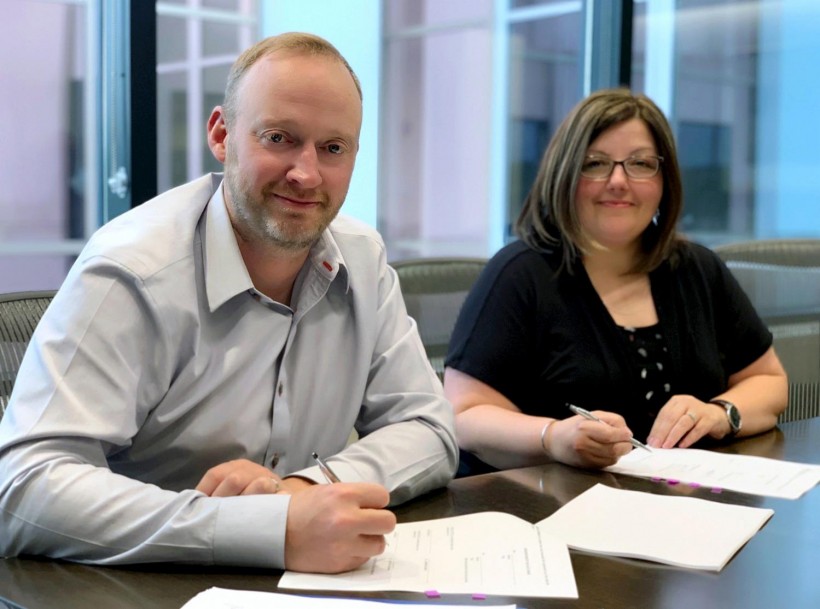Iain Klugman bristled when I referred to the Atlantic Canadian start-up community in a recent interview. A start-up community, explained the CEO of Kitchener, Ont.-based accelerator Communitech, is a smaller entity than something spanning four provinces. “Start-up communities define themselves, and they have to be first and foremost a place where people think they belong, where they believe they come from,” he said. “I don’t think people think of themselves as Atlantic Canadians.”
So my in-person interview in Kitchener with one of the most respected technology proponents in the country began with an assault on one of the central orthodoxies of the tech movement on the East Coast: the belief that we’re a regional community, not four provincial silos. But it was difficult to argue with Klugman because of the force of his personality, his knowledge of Atlantic Canada, and the undeniable success he has achieved in Kitchener-Waterloo.
Dressed in T-shirt and jeans, Klugman delivers opinions in short no-nonsense sentences, usually backed by strong evidence and fact. For example, he comments knowledgably on Atlantic Canada because he earned a master’s of public administration degree at Dalhousie University. He also worked one summer doing audits of Nova Scotia-based special-assistance homes, visiting every corner of the province. And he was in Halifax recently, working with the founders of the Volta shared office space.
As for evidence of his understanding of tech communities, I only had to look around me at the impressive facility he has developed in a former tannery in Kitchener. Communitech began in 1998 as an accelerator program; in 2010 it moved into its own 50,000-square-foot facility with lab and office space, meeting rooms, and an interface with support agencies and large businesses.
The facility houses 100 start-ups, a seed accelerator, a late-stage accelerator, two university incubators, and 12 large tech companies. And if that’s not enough, they’re building a satellite on the premises as part of a $22-million research project.
So when Klugman says the focus of start-up communities should be more localized, it’s difficult to argue with him. In particular, he believes Halifax is the perfect city (possibly one of about six such cities in Canada) to develop a bona fide start-up community.
That’s because Halifax offers the high level of connectivity that people need to feel in a start-up community. It’s similar in size to Kitchener–Waterloo, which has a population of about 400,000—the perfect size, according to Klugman, who believes that a start-up community should be located in a place that’s “small enough that you can get your arms around.”
In addition to its size, Klugman lists these three pro-Halifax factors:
-- Aided by the local universities, it’s a major talent magnet, not only in business but also in engineering, the arts, computer science, and other disciplines. “You can’t situate a start-up community in a place just because there’s an engineering school,” says Klugman.
-- It’s a place where people want to live, with good transportation links, a strong culture, a vibrant nightlife, and the lure of the ocean.
-- It has a long heritage of entrepreneurship, producing some of the strongest entrepreneurs in Canadian history.
Klugman adds that there is a role for the rest of Atlantic Canada to play in developing start-ups in the region, and there could be several start-up communities on the East Coast, although each should be unique.
Provincial governments also have a strong role to play in fostering start-up communities. They should follow the example of Ontario in establishing the right fiscal environment, making the right investments, and supporting local communities in growing the way that entrepreneurs consider best.
Finally, government must realize that not every community can be a tech community. “Tech communities are inherently local,” says Klugman. “There’s a sense of community, belonging, accountability, and loyalty. We’re all special, and we’re all different.”









